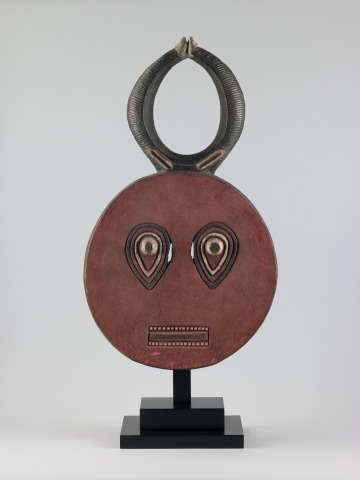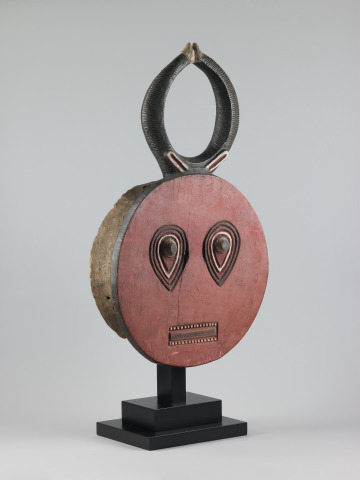Mask (kplekple)
- Culture
- Baule artist
- Date
- mid-20th century
- Material
- Wood and pigment
- possibly associated with
- Côte d'Ivoire, Africa
- possibly associated with
- Côte d'Ivoire, Africa
- Classification
- Costume & clothing, masks
- Collection
- Arts of Africa, Oceania, and the Americas
- Current Location
- Not on view
- Dimensions
- 40 x 20 x 7 1/4 in. (101.6 x 50.8 x 18.4 cm)
- Credit Line
- Director’s Discretionary Fund, Art Enrichment Fund, Special Tribute Fund, and Arts of Africa, Oceania, and the Americas Purchase Fund; bequest and gift of Morton D. May, gift of Joe and Mary Jane Ondr, Museum Purchase, Douglass C. North and Elisabeth W. Case, Mrs. Fannie Cook, Mr. Ingram Boyd, Rev. Marilyn A. Coffman, Rudi Caesar, and Mrs. Leif J. Sverdrup, by exchange
- Rights
- Public Domain
- Object Number
- 8:2011
NOTES
This mask, known as a "kplekple," is usually worn at the beginning of a ceremonial dance known as goli. "Kplekple" masks are part of a larger masquerade costume that includes dried raffia hanging from the mask, a netted shirt and pants, a raffia skirt, ankle and wrist fringes, and an animal hide on the back. The Wan developed the goli masquerade, which involves a variety of paired masks, musicians, and communal feasting, about a century ago. Over time, masks tended to get larger in size; the earliest "kplekple" masks are half the size of this mask or smaller.
We regularly update records, which may be incomplete. If you have additional information, please contact us at provenance@slam.org.

